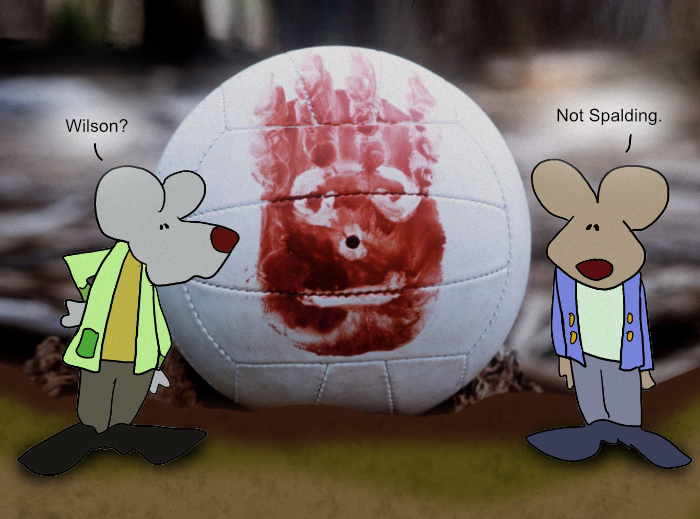One of my all-time favorite characters in a movie was a volleyball. Wilson. Wilson, the volleyball and best friend of Tom Hanks in Castaway.
It had to be a Wilson ball. Spalding would not have been nearly as endearing or compelling. Best supporting actor in a drama? Wilson.
But Spalding? It was on this date, February 3, 1876, when Albert Spalding invested $800 of his hard-earned money to start a sporting goods company, which would go on to manufacture the first official baseball, tennis ball, basketball, golf ball, and football in the world of sports. Spalding had the balls.
Mr. Spalding and Mr. Wilson lived roughly around the same time.
Thomas E. Wilson — July 22, 1868, to August 4, 1958 (aged 90).
Born in London, Ontario, Canada
Died in Lake Forest, Illinois, US
Albert Spalding — September 2, 1849 – September 9, 1915 (aged 66).
Born in Byron, Illinois, US
Died in San Diego, California, US
But I have to say. Even without the whole volleyball thing, I like Wilson better. I always have. I had a Wilson softball glove when I was a kid. And the basketball we used in our backyard was a Wilson.
I didn’t know it then, but Thomas E. Wilson created his sports brand business in 1926. It has become one of the world’s most recognizable sports brand names.
When he came to the United States, he started working as a railroad car checker in those busy stockyards of Chicago, Illinois. Somehow, he went from railroad worker to working in a packing house called Morris & Co. Wilson spent 25 years working his way up the ranks there. All the way to President in 1913.
From there, he was recruited to run a failing New York-based meat packer Sulzberger & Sons. Wilson brought the failing company back on its feet and bought the place. He renamed the firm Wilson & Co. and moved its headquarters to Chicago’s Union Stock Yards. It soon joined Armour and Swift at the top of the U.S. meat industry.
I had no idea the Wilson Company started in the meat industry. But he grew it into one of the 50 largest industrial corporations in the United States. And his brands include Wilson Certified Hams, Wilson’s Continental Deli, and Wilson’s Corn King.
Besides all that? He was a leader of the national 4-H program and breeder of shorthorn cattle.
During the 1920s, in some real estate deal, Wilson bought the Ashland Manufacturing Company, including its inventory of sporting goods products. I’d like to note: the same deal had been offered to Spalding, among others. Nobody wanted it. But Wilson did and grew it large.
He seemed like a good guy. In 1946 Wilson received the United States Government’s Medal for Merit from President Harry Truman for his services to the U.S. economy during World War.
Now, Albert Spalding was a sports guy from the start. He played baseball as a pitcher and went on to be a manager and eventually owner of teams. And, of course, he was the (co-) founder of A.G. Spalding Sporting Goods Company.
He was a good pitcher in his day, having played for the Chicago White Sox. He was also inducted into the Baseball Hall of Fame in 1939.
After his ball-playing days, he did a lot in the administration of baseball’s major and minor leagues. But here is one reason I don’t care for Spalding so much. From early on (the 1850s), he was firmly against including black or women baseball players. He said he feared it would bring about “the introduction of rowdies, drunkards, and dead-beats.”
He kept this up throughout his administrative involvement in baseball. In 1912, Spalding wrote, “Neither our wives, our sisters, our daughters, our sweethearts, may play Base Ball on the field… they may play Basket Ball, and achieve laurels; they may play Golf, and receive trophies, but Base Ball is too strenuous for womankind, except as she may take part in grandstands, with applause for the brilliant play, with waiving kerchief to the hero of the three-bagger.”
Whatever, Spalding.
Wilson saved Tom Hanks’ life on the island.
Try to top that.
======
“Sportsmanship for me is when a guy walks off the court and you really can’t tell whether he won or lost, when he carries himself with pride either way.”
— Jim Courier
=====
“Excellence is not a singular act but a habit. You are what you do repeatedly.”
— Shaquille O’Neal
======
“They are who we thought they were!”
— Dennis Green
======
That guy behind the volleyball.
